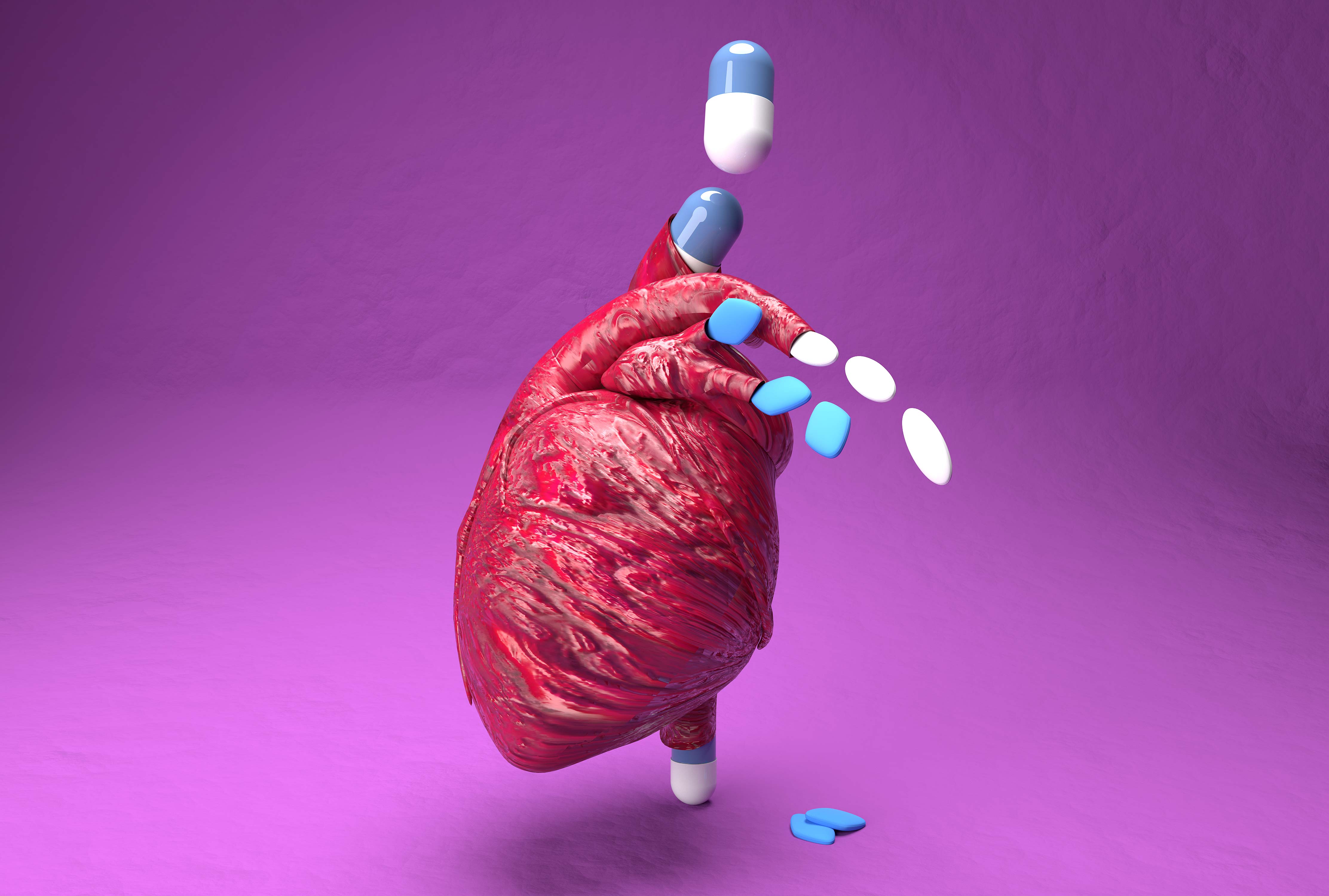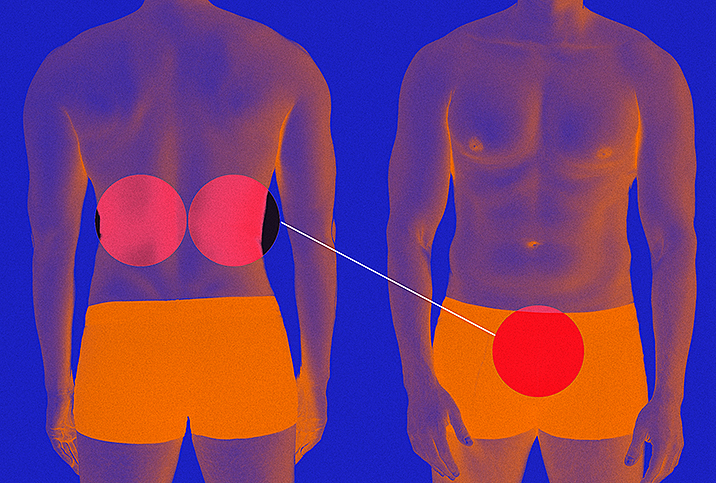5 Proven Ties Between Heart Health and ED

Erectile dysfunction (ED) is a common issue for men, negatively impacting both sexual and mental health. But this isn't a problem just for the bedroom, as research shows a close link between ED and heart health.
The relationship between your heart and hard-on
Erectile dysfunction—difficulty achieving or maintaining an erection firm enough for sex or masturbation—affects about 47 million American men. Prevalence increases with age: An estimated 22 percent have some form of ED by age 40, and 49 percent have it by age 70, according to a Boston University School of Medicine report.
At first glance, ED and heart disease may seem unrelated. However, both are closely associated with the health of the cardiovascular system, including blood flow and factors that regulate it.
1. Impact of endothelial health
The inner lining of blood vessels, known as the endothelium, can be indicative of the effectiveness of blood flow, or perfusion, throughout the body. The endothelium releases chemicals involved in the contraction and relaxation of the vasculature and plays a role in blood clotting and immune function. Endothelial dysfunction happens when the endothelial layer in blood vessels fails to perform its functions, resulting in inadequate blood supply throughout the body, including to both the heart and the penis. Without a sufficient effusion of blood, it's either impossible or extremely difficult for the penis to stiffen. ED and heart disease have both been linked to endothelial dysfunction.
2. Atherosclerosis
Another cause of endothelial dysfunction is atherosclerosis, a narrowing of the blood vessels due to accumulated plaques from cholesterol in the diet. When plaques clog the blood vessels, they cannot properly dilate, and inability of the blood vessels to dilate during sexual arousal makes a firm erection impossible. Plaques that form in the coronary artery can eventually rupture and cause a blood clot to form, which can impede all blood flow to the heart and result in a heart attack. A 2019 study of 437 prostate cancer patients, published in the Journal of the American College of Cardiology, reported each increment of measure of atherosclerosis was associated with a corresponding increased risk of having ED, and the authors noted atherosclerosis may be the most important risk factor for difficulty in getting erections.
3. Smooth muscle cells
While vessels must dilate to permit blood flow, smooth muscle cells (SMCs) in the penis must also relax for blood to fill the organ. Studies indicate a reduction in SMCs is linked to atherosclerosis, which decreases oxygen tension in the penis. Smooth muscle cells play a role in blood flow beyond the penis—they're involved in vascular contraction throughout the body, and the changes these cells undergo during stressed conditions can contribute to heart disease.
4. Common risk factors
Studies show risk factors for ED and heart disease overlap considerably. Age increases risk for both conditions, although the link between the two is stronger at a younger age. Smoking and high blood pressure both damage arteries and contribute to atherosclerosis and decreased blood flow. Having diabetes and being overweight are also predictors of both ED and heart disease, as are mental health risks such as depression.
5. ED as a warning sign for heart disease
Erectile problems may be an indicator of cardiovascular disease, according to Johns Hopkins Medicine. A four-year study published in 2018 in Circulation journal reviewed data from nearly 2,000 men and reported that those with ED experienced more than twice the number of heart events (heart attack, stroke, cardiac arrest) than guys without ED. Having ED is just as much a risk factor for heart disease as smoking or family history of coronary artery disease. Research shows ED is often experienced three to five years before a heart attack, so erectile problems may be an important warning sign of heart health problems and should serve as a call to action.
Treating heart disease to improve erectile function
Many of the same physiological mechanisms are at play in both heart disease and erectile dysfunction, which means changes to improve one may help the other. A better diet, getting adequate exercise, avoiding smoking and minimizing alcohol can significantly benefit both your heart and your penis. An important part of most ED treatment protocols, especially for men with heart disease, includes wearable treatments like vacuum pumps or constriction devices. If you experience ED, talk to your doctor about your heart disease risk and need for additional testing. Stay positive. With changes to your daily routine, you can support your heart and your sex life.


















